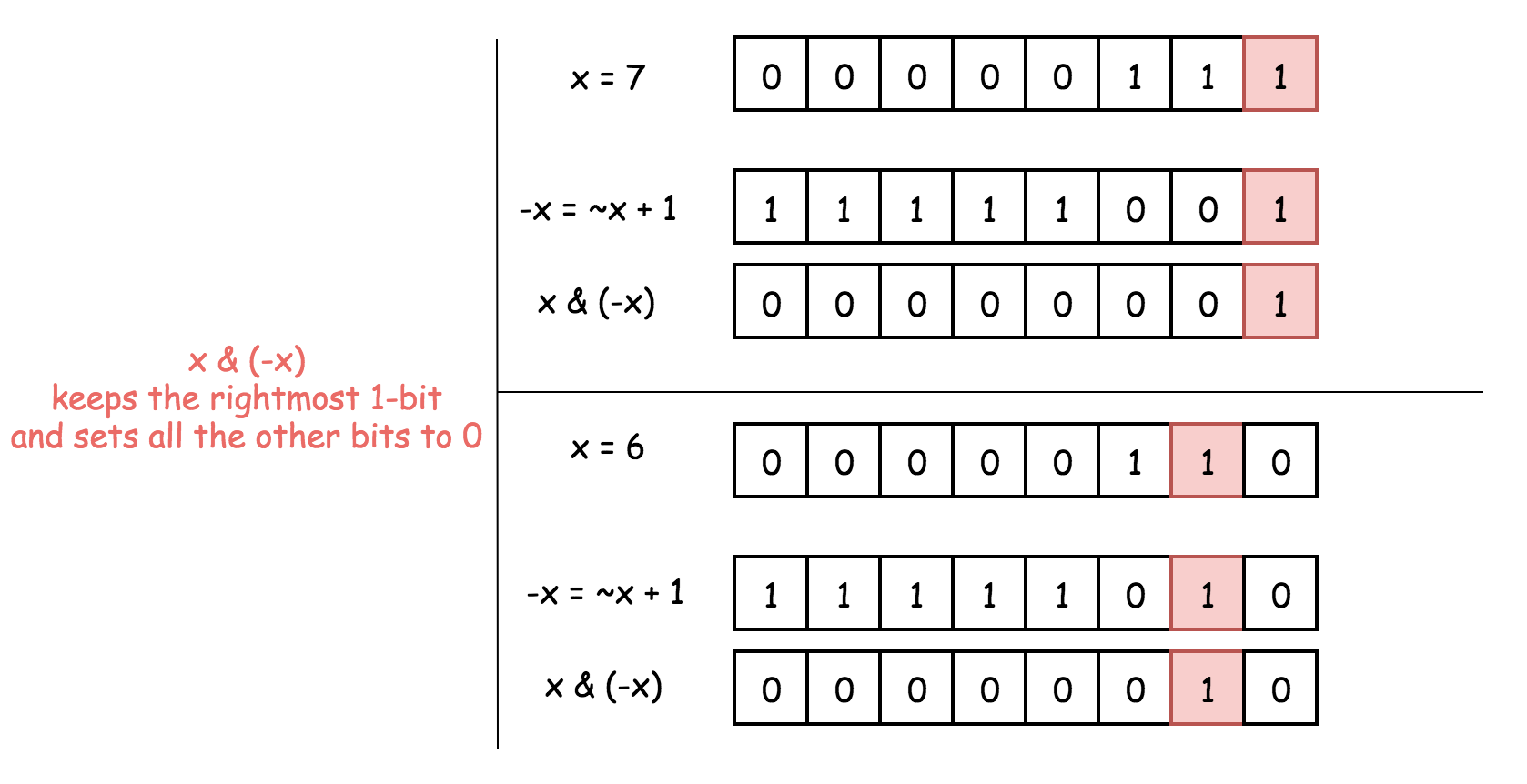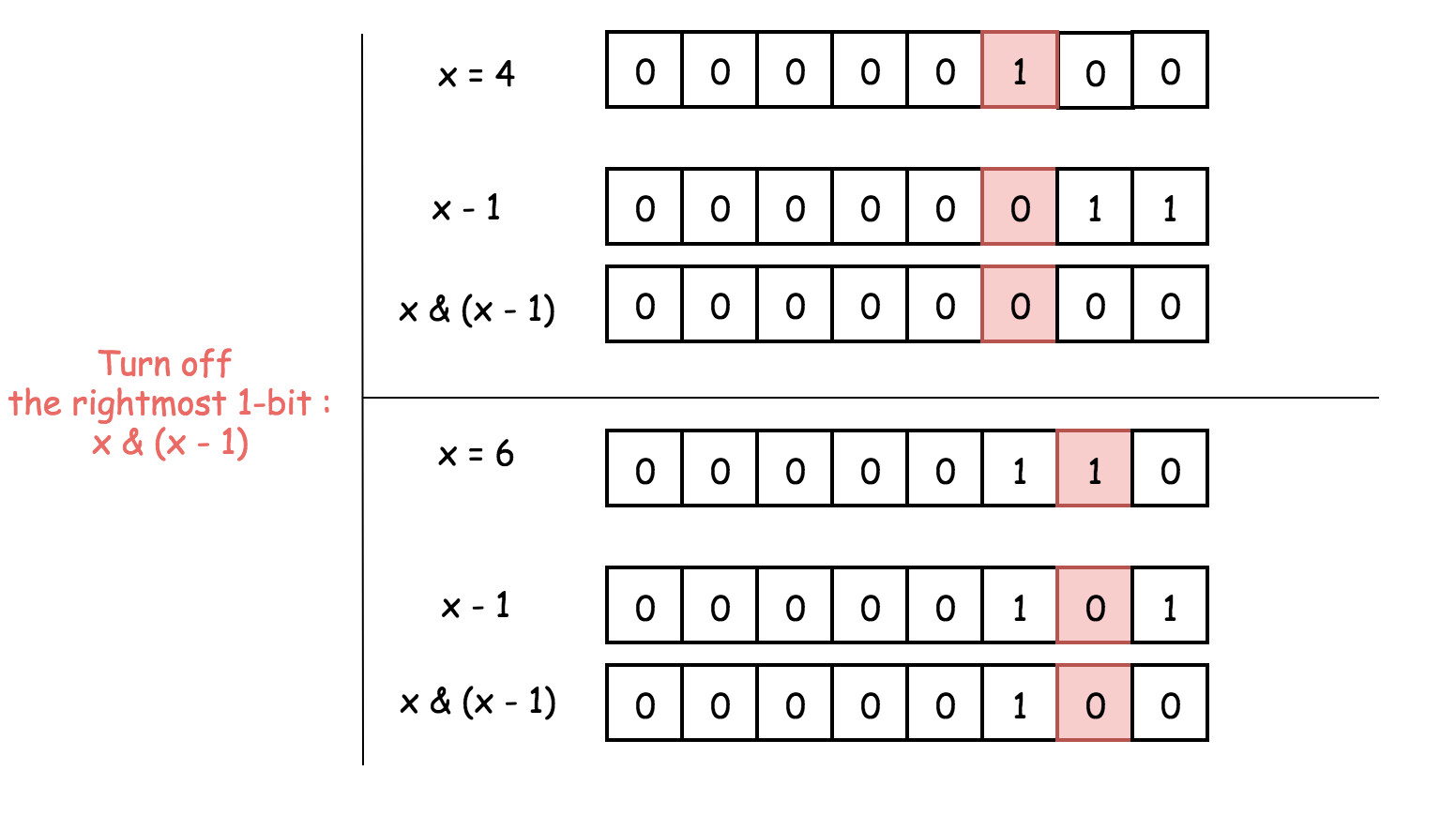Given an integer n, return true if it is a power of two. Otherwise, return false. An integer n is a power of two, if there exists an integer x such that n == 2x.
Example 1: Input: n = 1 Output: true Explanation: 20 = 1 Example 2: Input: n = 16 Output: true Explanation: 24 = 16 Example 3: Input: n = 3 Output: false
Constraints: -231 <= n <= 231 - 1
- code
class Solution:
def isPowerOfTwo(self, n: int) -> bool:
while n > 1:
if n % 2 != 0: return False
n = n // 2
return n == 1
power of 2
a power of two in binary representation is one 1-bit, followed by some zeros:
1 = (0000 0001)_21=(00000001)2
2 = (0000 0010)_22=(00000010)2
4 = (0000 0100)_24=(00000100)2
8 = (0000 1000)_28=(00001000)2
A number which is not a power of two, has more than one 1-bit in its binary representation:
3 = (0000 0011)_23=(00000011)2
5 = (0000 0101)_25=(00000101)2
6 = (0000 0110)_26=(00000110)2
7 = (0000 0111)_27=(00000111)2
The only exception is 0, which should be treated separately.


- code
class Solution(object):
def isPowerOfTwo(self, n):
if n == 0:
return False
return n & (-n) == n
- code
class Solution {
public boolean isPowerOfTwo(int n) {
if (n == 0) return false;
long x = (long) n;
return (x & (-x)) == x;
}
}